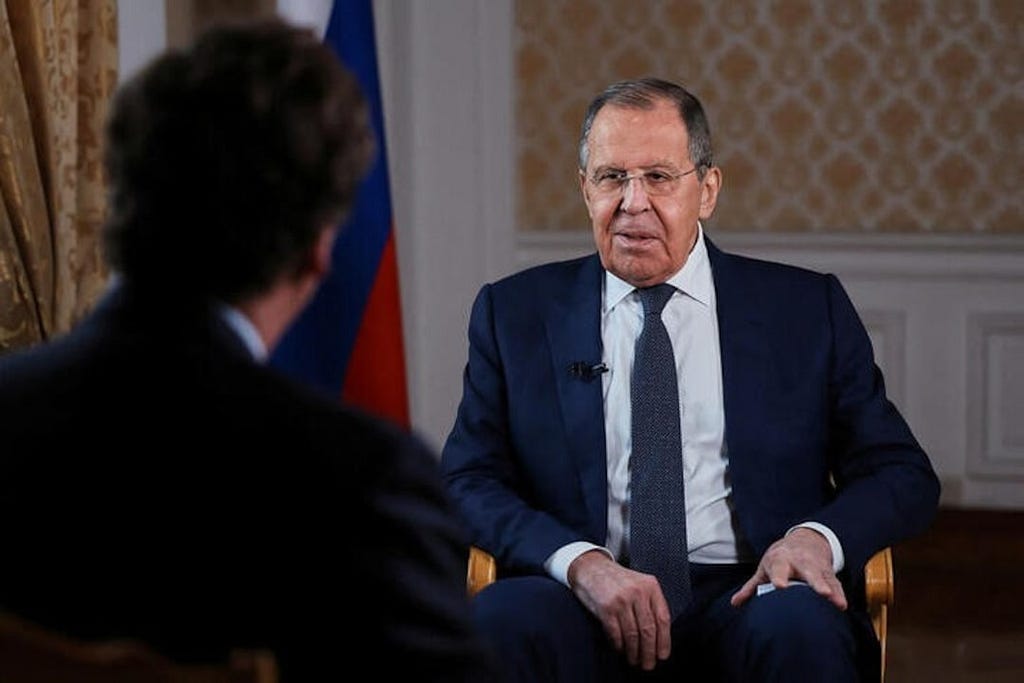A New Era of Uncertainty: Trump’s Win and Russia’s Long Game in Ukraine
The Silent Ally: Trump’s victory in 2024 reshapes the battlefield — not just in Ukraine but across the geopolitical landscape.
With Trump in the White House, Moscow bets on Western divisions to sustain its ambitions in Ukraine and beyond.

Russia’s Confidence in Renewed Opportunity
Trump’s victory could be framed as a validation of Moscow’s long-term strategy to exploit Western political dynamics. A White House led by Trump would likely prompt Russia to believe it has a unique window of opportunity to recalibrate its objectives in Ukraine and the broader geopolitical arena. This belief would influence Russia’s tactical and strategic calculations, reinforcing its persistence in Ukraine and possibly emboldening its actions elsewhere.
Shifting U.S. Policy on Ukraine:
Trump’s history of questioning U.S. military aid and foreign entanglements suggests that his administration might deprioritize support for Ukraine. This shift could lead to significant reductions in military and financial assistance, weakening Ukraine’s ability to resist Russian aggression.
Moscow may interpret this as a green light to push harder in Ukraine or negotiate from a position of strength.
Weakening NATO Unity:
Trump’s previous skepticism of NATO and threats to withdraw could resurface, sowing doubt among U.S. allies about the reliability of American leadership.
This uncertainty might encourage some NATO members to adopt a more conciliatory stance toward Russia, further fracturing Western unity.
Reduced Sanctions Pressure:
Trump’s transactional approach to diplomacy could result in softer enforcement of sanctions or an attempt to negotiate directly with Moscow, potentially undermining the broader international pressure campaign.
Implications for NATO and Western Alliances
Trump’s win could amplify existing divisions within NATO and among European allies, undermining the coordinated response that has been a hallmark of the Western strategy in Ukraine.
Internal NATO Conflicts:
Russia might seize the opportunity to deepen divisions among NATO members, leveraging Trump’s rhetoric to cast doubt on the alliance’s effectiveness and necessity. This would weaken collective deterrence efforts and embolden Moscow’s regional ambitions.Erosion of Trust in Western Institutions:
Trump’s leadership could undermine confidence in transatlantic institutions like NATO and the EU, creating fertile ground for Russian disinformation campaigns aimed at discrediting Western unity and governance.
The Broader Geopolitical Picture
Trump’s victory could also shift the global balance of power, allowing Russia to assert itself more aggressively in other regions.
Expanded Influence in Eastern Europe:
With diminished Western resolve, Russia could increase its influence over other former Soviet states, extending its sphere of control while consolidating gains in Ukraine.
Encouraging Authoritarian Alliances:
Russia might use the perceived Western retreat as a signal to strengthen ties with other authoritarian regimes, forming coalitions that challenge Western-led international norms.
The Narrative Advantage for Moscow
Trump’s win could be weaponized by Russian propaganda to portray a divided and weakened West. This narrative might suggest that democracy itself is faltering, a claim Russia often uses to justify its authoritarian model both domestically and abroad.
Bolstering Domestic Support:
By framing Trump’s victory as proof of Western disarray, Moscow could reinforce domestic narratives about the superiority of its governance model, maintaining popular support for its actions in Ukraine.
Sowing Division in the West:
Russia’s disinformation campaigns could exploit Trump’s polarizing leadership to further inflame partisan tensions in the U.S. and among NATO allies, diverting attention from Ukraine and weakening Western solidarity.
Strategic Patience Reinforced
Russia’s long game would find new vigor with Trump in the White House. Moscow could interpret his presidency as an opportunity to outlast Western resolve, secure favorable conditions for negotiation, or even achieve outright victory in Ukraine.
Extended Conflict:
Russia might prolong the war, betting that Western fatigue combined with a more Russia-sympathetic U.S. administration could force Kyiv to accept terms more favorable to Moscow.Potential Settlements on Russian Terms:
Trump’s transactional diplomacy style might lead to pressure on Ukraine to negotiate a peace settlement, likely at the cost of territorial concessions.
Counterpoints and Risks for Moscow
While a Trump presidency could provide openings for Russia, it also carries risks:
Unpredictability of U.S. Policy:
Trump’s erratic decision-making might make him a challenging ally for Moscow to predict or influence effectively.Strengthened European Resolve:
If Europe perceives a weakened U.S. commitment, key NATO members like Germany and France might step up their leadership roles, countering Moscow’s strategies.Domestic Challenges for Trump:
Political resistance within the U.S., especially from Congress, could limit Trump’s ability to drastically shift Ukraine policy or NATO commitments.
Conclusion: A New Geopolitical Landscape
Trump’s victory would undoubtedly reshape the dynamics of the Ukraine conflict, introducing both opportunities and challenges for Russia. While Moscow might perceive his presidency as a strategic advantage, the complexities of international relations and domestic politics could produce unexpected outcomes.
For Ukraine and its allies, the stakes would rise significantly, necessitating renewed efforts to maintain unity, strengthen NATO, and counter Russian narratives. The question remains whether the West can adapt quickly enough to prevent this geopolitical shift from tilting the balance in Moscow’s favor.
As the dust settles on the 2024 election, one thing is certain: the Ukraine conflict is not merely a battlefield struggle but a litmus test for the resilience of democracy and the strength of alliances in an era of strategic manipulation and global power shifts.
A New Era of Uncertainty: Trump’s Win and Russia’s Long Game in Ukraine was originally published in Information-Warfare Magazine on Medium, where people are continuing the conversation by highlighting and responding to this story.


